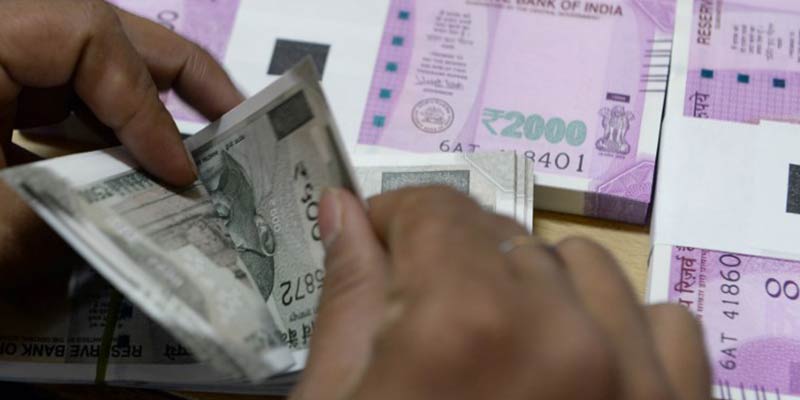- India
- Jan 24
India slips to 80th in corruption index
India has been ranked at the 80th position among 180 countries and territories in the Corruption Perceptions Index (CPI) prepared by Transparency International. Last year, the country was at 78th spot.
Denmark and New Zealand have cornered the top spot, followed by Finland, Singapore, Sweden and Switzerland in the top ten.
With a score of 41, India shares the the 80th spot with China, Benin, Ghana and Morocco. Neighbouring Pakistan is ranked at the 120th place.
How is the index prepared?
The CPI, released at the World Economic Forum (WEF) 2020 in Davos, ranks 180 countries and territories by their perceived levels of public sector corruption, drawing on 13 expert assessments and surveys of business executives. It uses a scale of zero (highly corrupt) to 100 (very clean).
More than two-thirds of countries score below 50 on this year’s CPI, with an average score of just 43. Similar to previous years, the data shows that despite some progress, a majority of countries are still failing to tackle public sector corruption effectively.
The top countries in the index are New Zealand and Denmark, with scores of 87 each, followed by Finland (86), Singapore (85), Sweden (85) and Switzerland (85).
The bottom countries are Somalia, South Sudan and Syria with scores of 9, 12 and 13, respectively.
In the last eight years, only 22 countries significantly improved their CPI scores, including Greece, Guyana and Estonia. In the same period, 21 countries significantly decreased their scores, including Canada, Australia and Nicaragua. In the remaining 137 countries, the levels of corruption show little to no change.
Corruption and political integrity
Transparency International chair Delia Ferreira Rubio said governments must urgently address the corrupting role of big money in political party financing and the undue influence it exerts on our political systems.
Analysis shows that countries that perform well on the CPI also have stronger enforcement of campaign finance regulations and broader range of political consultation.
Countries where campaign finance regulations are comprehensive and systematically enforced have an average score of 70 on the CPI, whereas countries where such regulations either don’t exist or are poorly enforced score an average of just 34 and 35 respectively.
According to the non-government group’s report, even in democracies, such as Australia and India, unfair and opaque political financing and undue influence in decision-making and lobbying by powerful corporate interest groups, result in stagnation or decline in control of corruption.
Nearly 60 per cent of the countries that significantly improved their CPI scores since 2012 also strengthened regulations around campaign donations.
“The lack of real progress against corruption in most countries is disappointing and has profound negative effects on citizens around the world. To have any chance of ending corruption and improving peoples’ lives, we must tackle the relationship between politics and big money. All citizens must be represented in decision making,” said Patricia Moreira, managing director of Transparency International.
Countries with broader and more open consultation processes score an average of 61 on the CPI. By contrast, where there is little to no consultation, the average score is just 32.
A vast majority of countries that significantly decreased their CPI scores since 2012 do not engage the most relevant political, social and business actors in political decision-making.
Recommendations to curb corruption
To end corruption and restore trust in politics, it is imperative to prevent opportunities for political corruption and to foster the integrity of political systems. Transparency International has recommended some methods.
1) Manage conflicts of interest: Governments should reduce the risk of undue influence in policy-making by tightening controls over financial and other interests of government officials. Governments should also address “revolving doors”, establish cooling-off periods for former officials and ensure rules are properly enforced and sanctioned.
2) Control political financing: In order to prevent excessive money and influence in politics, governments should improve and properly enforce campaign finance regulations. Political parties should also disclose their sources of income, assets and loans, and governments should empower oversight agencies with stronger mandates and appropriate resources.
3) Strengthen electoral integrity: For democracy to be effective against corruption, governments must ensure that elections are free and fair. Preventing and sanctioning vote-buying and misinformation campaigns are essential to rebuilding trust in government and ensuring that citizens can use their vote to punish corrupt politicians.
4) Regulate lobbying activities: Governments should promote open and meaningful access to decision-making and consult a wider range of groups, beyond well-resourced lobbyists and a few private interests. Lobbying activities should be public and easily accessible.
5) Empower citizens: Governments should protect civil liberties and political rights, including freedom of speech, expression and association. Governments should engage civil society and protect citizens, activists, whistleblowers and journalists in monitoring and exposing corruption.
6) Tackle preferential treatment: Governments should create mechanisms to ensure that service delivery and public resource allocation are not driven by personal connections or are biased towards special interest groups at the expense of the overall public good.
7) Reinforce checks and balances: Governments must promote the separation of powers, strengthen judicial independence and preserve checks and balances.
Manorama Yearbook app is now available on Google Play Store and iOS App Store


